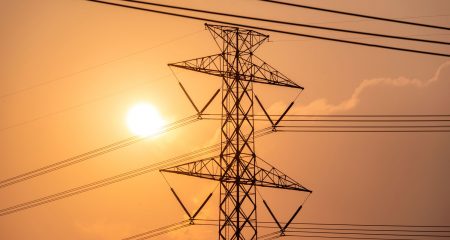 Business sentiment declined to a two-year low in the first quarter as severe power outages and dilapidated logistics networks hobbled economic activity.
Business sentiment declined to a two-year low in the first quarter as severe power outages and dilapidated logistics networks hobbled economic activity.
A quarterly business confidence index compiled by Rand Merchant Bank and Stellenbosch University’s Bureau for Economic Research fell to 36 in the three months to March from 38 in the prior quarter. That’s the lowest level since the first quarter of 2021, when executives were concerned about the fragile nature of South Africa’s recovery from the damage wrought by the Covid-19 pandemic.
The survey of 1 050 senior executives in sectors including manufacturing, retail and building was carried out between 8 and 27 February. Eskom subjected the country to record blackouts of as much as 12 hours on multiple days during the period to protect the national grid from collapse as its ageing and poorly maintained coal-fired power plants struggled to meet demand.
Gauges tracking manufacturing and retail sentiment “nosedived” in the quarter, leading to a decline in the overall index, RMB said.
Manufacturing confidence dropped by nine points to 17, a level last seen about three years ago when the country imposed severe restrictions on economic activity and peoples’ movement to curb the spread of virus.
“A level this low is rare, and it speaks to a sector that is bearing the brunt of the combined impact of intense load shedding and dilapidated and poorly run logistic infrastructure,” RMB said.
Retail sentiment declined to 34 from 42 as traders were forced to cut operating hours and run costly alternative power solutions, including generators, to lessen the impact of the outages, the Johannesburg-based lender said. While the blackouts also led to a small decrease in confidence among building contractors, the mood among sub-contractors including electricians “rose massively” due to the installation of backup power, it said.
Read: Eskom load shedding sends economy into a tailspin
The “thin silver lining attached to load shedding must not distract from the devastating blow load shedding specifically, and failing rail, road and port infrastructure more generally, are inflicting on the economy”, RMB chief economist Ettienne le Roux said. “The urgent need of a united public and private sector effort to fix disruptive supply-side bottlenecks cannot be stressed enough.” — (c) 2023 Bloomberg LP




